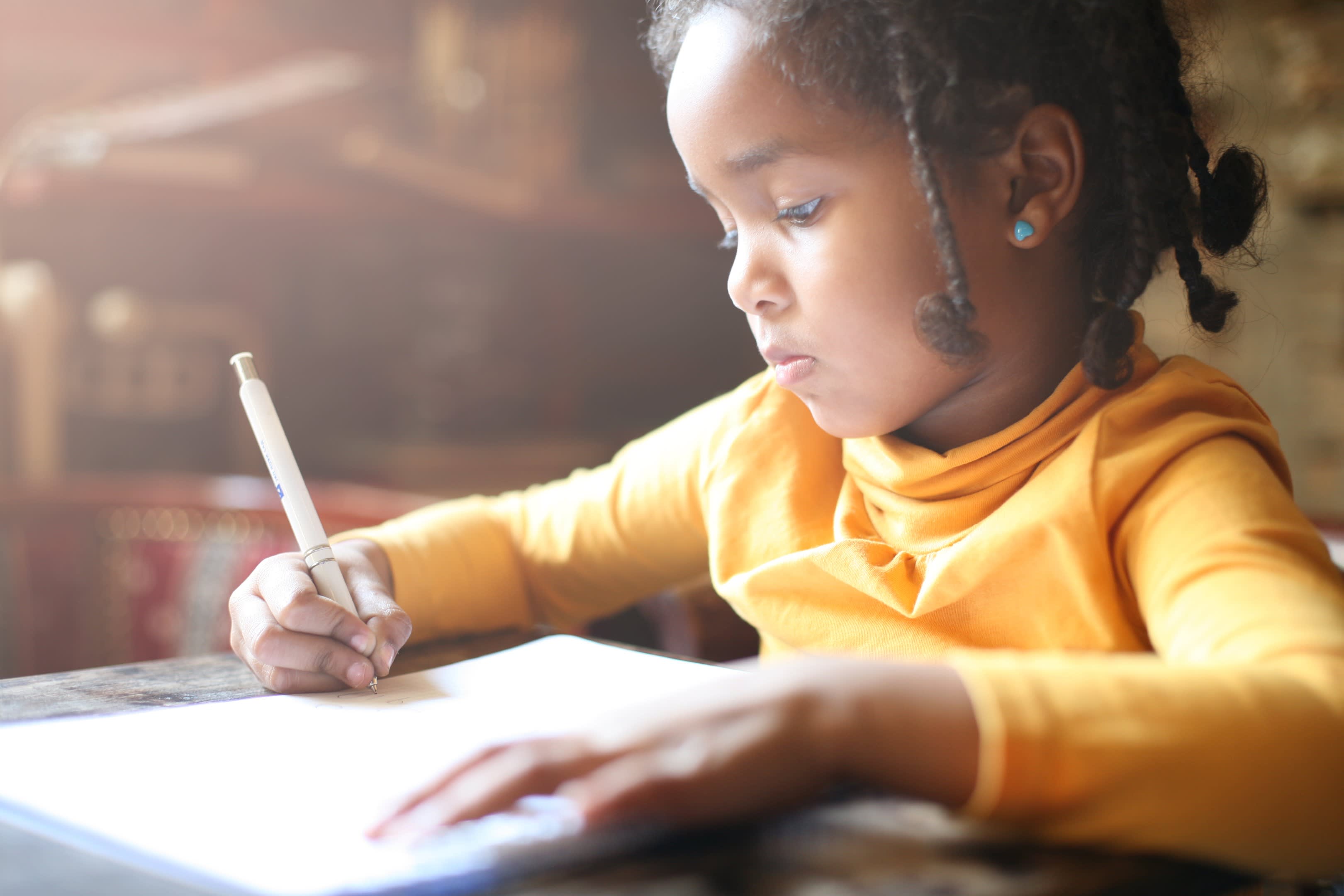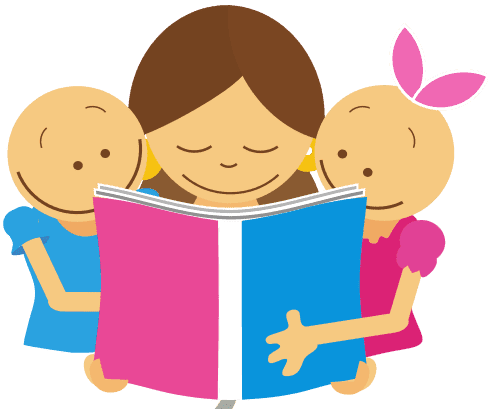The Impact of Growing Up Surrounded by Books: Boosting Academic Success

Posted on September 6th, 2024
Have you ever noticed how a child's eyes light up when they hear a story? Imagine that same spark kindled daily with the presence of books around them. When you introduce your little ones to the boundless world within the pages of a book, you're not just telling tales; you're opening doors to new ways of thinking and imagining.
These tiny moments of reading stack up to create significant lifelong benefits. It's more than just gaining a rich vocabulary; it's about building morality and sharpening critical thinking skills.
Picture this: a child who enters kindergarten with the confidence to express their thoughts, armed with a robust vocabulary and the critical thinking skills that give them a head start.
You’re not just reading to them; you’re helping them build a toolkit for life. The magic of these early experiences often translates into better performance in school, enabling them to deal with complex subjects with ease later on.
So, as you browse through your child's books or consider adding a few more to the shelf, think of it as laying the bricks for their academic and personal success. Doesn't that sound like an incredible gift to give your child?
Books and Brain Development in Childhood
Books and brain development are fundamentally intertwined, especially during those formative early years. When children are exposed to books frequently, their brains are continuously processing new information, patterns, and the basic structures of language.
Enhancing Vocabulary and Communication Skills
Experts have shown through numerous studies that early reading experiences heavily stimulate areas of the brain connected to language, literacy, and imagination. The act of hearing and later reading stories helps build neural pathways, fostering a greater knowledge of words and communication.
Furthermore, this type of childhood stimulation and brain development encourages an enhanced ability to visualize and create images in their minds, setting the stage for strong cognitive skills later in life. Engaging with books can also nurture a child’s ability to focus and improve memory retention, paving the way for academic success.
Indeed, it’s fascinating—don’t you think? Studies have consistently highlighted that early interaction with books can lead to greater cognitive abilities. One study by Rutgers Robert Wood Johnson Medical School found that children who are read to during infancy have a larger vocabulary and stronger language skills by the time they enter kindergarten.
Boosting Confidence
Imagine the boost in confidence a child feels when they can articulate their thoughts clearly! This early exposure to books doesn’t just teach them words; it introduces them to concepts, morality, and critical thinking skills. It’s like giving a child a toolkit for life, filled with a wide range of communication tools that they will refine and utilize across their academic journey. Simply put, the more a child is exposed to books significantly improves their future learning capabilities.
This kind of childhood stimulation and brain development doesn’t just make children smarter; it shapes the way they perceive the world. They become better equipped to understand different perspectives, put themselves in the shoes of diverse characters, and anticipate outcomes—all critical skills for both academic success and personal development. As you consider your child's daily activities, think of each book as not just a story but as a step towards building a richer, more capable mind.
Academic Success Through Exposure to Books
Academic success through exposure to books is well-documented, and access to a large home library can make all the difference. Research published in Science Direct revealed that having a home library significantly impacts children's academic performance. This correlation between a home filled with books and higher educational attainment underscores the importance of fostering an environment where reading is a regular, encouraged activity. When children are surrounded by a variety of books, they naturally become more curious and inclined to read, setting a solid foundation for lifelong learning and academic success.
 Promoting Higher Scores
Promoting Higher Scores
Delving deeper into the impact of exposure to large home libraries, it's intriguing to see how reading at a young age translates into tangible academic benefits.
A study published in MDPI highlights that children who grow up in homes with a wide range of books perform better on standardized tests. Specifically, students from book-rich environments scored notably higher in reading, math, and science.
The inherent advantages do not stop at elementary levels; they extend into high school and college years, ultimately influencing career paths. Thus, a robust home library not only promotes early literacy but also strengthens critical thinking and problem-solving skills, which are key components for academic success and beyond.
Developing Emotional and Social Skills
Engaging with a diverse range of books also introduces children to different cultures, histories, and viewpoints, enhancing their empathy and comprehension of the world. This broader perspective can translate into better social interaction, which is a vital aspect of academic achievement. Being able to relate to peers and teachers can make the educational experience richer and more meaningful.
The Lifelong Learning Advantage

Books and lifelong learning form an inseparable bond, paving the way for advantages that extend well beyond childhood. When children regularly engage with books, they develop a natural affinity for stories and information. This love for reading often matures into a passion for continuous learning.
Becoming Knowledge Seekers
Picture a child who eagerly looks forward to storytime, their curiosity piqued by each new tale. As they grow, this eagerness translates into a desire to seek knowledge independently, sustaining them through school and beyond. The long-term benefits of books in childhood are numerous; improved comprehension skills, a rich vocabulary, and enhanced critical thinking abilities are just the beginning. Each book read contributes to a reservoir of knowledge and skills that enhance academic performance through all stages of education.
Moreover, critical thinking skills are consistently developed as children analyze story plots, characters' decisions, and moral lessons. They naturally become problem solvers and creative thinkers, qualities that are essential when facing life's challenges.
Nurturing a Motivation to Keep Learning
Isn't it remarkable how a simple bookshelf can serve as a gateway to a world of lifelong learning? Parents play a pivotal role in this journey by maintaining a variety of age-appropriate books and setting aside time for shared reading experiences. When families prioritize reading, children learn to associate books with comfort, joy, and discovery. This positive reinforcement fosters a love for books that endures, sometimes becoming a cherished family tradition passed down through generations. Encouraging your child to read not only sharpens their intellectual faculties but also nurtures a motivation to keep learning.
Related: The Best Children's Books for Every Age Group: A Guide for Parents
Final Words
When you think about the many benefits that books offer to children’s development, it’s clear why it’s so critical to encourage a love of reading from an early age. The intellectual growth, improved social skills, and emotional intelligence cultivated through stories lay the groundwork for a lifetime of learning.
At Janet Ashmore, we believe in the importance of introducing children to books since their first years. Our carefully crafted, fully illustrated children’s books are a wonderful way to introduce your child to these enriching experiences. Each page is lovingly designed to capture their imagination, teaching Christian values through engaging narratives and beautiful illustrations. Whether it’s tales of kindness, forgiveness, or the importance of community, our books offer a gentle yet profound way to instill virtues that your child will carry with them always.
Interested in uplifting your family's reading journey? Shop Now!
Feel free to reach out to us at (813) 567-9568 or email [email protected] for more information on how our collection can be a part of your home.
Get In Touch
Let's Connect
I am always happy to hear from you, so don’t hesitate to send a message below!
